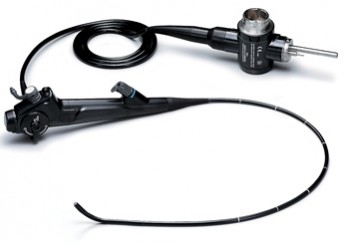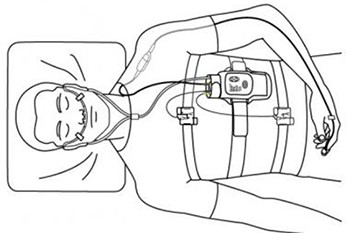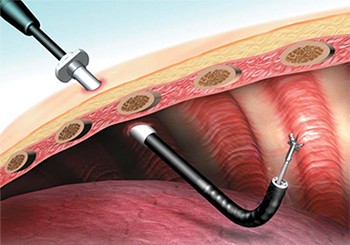Lung cancer is cancer that starts in the lungs. The lungs are located in the chest. When you breathe, air goes through your nose, down your windpipe (trachea), and into the lungs, where it flows through tubes called bronchi. Most lung cancer begins in the cells that line these tubes.
There are two main types of lung cancer :
- Non-small cell lung cancer (NSCLC) is the most common type of lung cancer.
- Small cell lung cancer (SCLC) makes up about 20% of all lung cancer cases.
- If the lung cancer is made up of both types, it is called mixed small cell/large cell cancer.
- If the cancer started somewhere else in the body and spreads to the lungs, it is called metastatic cancer to the lung.
Causes
 Lung cancer is the deadliest type of cancer for both men and women. Each year, more people die of lung cancer than of breast, colon, and prostate cancers combined.
Lung cancer is the deadliest type of cancer for both men and women. Each year, more people die of lung cancer than of breast, colon, and prostate cancers combined.
Lung cancer is more common in older adults. It is rare in people under age 45.
Cigarette smoking is the leading cause of lung cancer. The more cigarettes you smoke per day and the earlier you started smoking, the greater your risk of lung cancer. There is no evidence that smoking low-tar cigarettes lowers the risk.
Lung cancer can also affect persons who have never smoked.
Secondhand smoke (breathing the smoke of others) increases your risk of lung cancer.
The following may also increase your risk of lung cancer :
- Exposure to asbestos.
- Exposure to cancer-causing chemicals such as uranium, beryllium, vinyl chloride, nickel chromates, coal products, mustard gas, chloromethyl ethers, gasoline, and diesel exhaust.
- Exposure to radon gas.
- Family history of lung cancer.
- High levels of air pollution.
- High levels of arsenic in drinking water.
- Radiation therapy to the lungs.
Symptoms
Early lung cancer may not cause any symptoms. Symptoms depend on the type of cancer you have, but may include :
- Chest pain.
- Cough that does not go away.
- Coughing up blood.
- Fatigue.
- Losing weight without trying.
- Loss of appetite.
- Shortness of breath.
- Wheezing.
Other symptoms that may also occur with lung cancer, often in the late stages :
- Bone pain or tenderness.
- Eyelid drooping.
- Facial paralysis.
- Hoarseness or changing voice.
- Joint pain.
- Nail problems.
- Shoulder pain.
- Swallowing difficulty.
- Swelling of the face or arms.
- Weakness.
These symptoms can also be due to other, less serious conditions, so it is important to talk to your health care provider.
Exams and Tests
 Lung cancer is often found when an x-ray or CT scan is done for another reason.
Lung cancer is often found when an x-ray or CT scan is done for another reason.
If lung cancer is suspected, the doctor will perform a physical exam and ask about your medical history. You will be asked if you smoke. If so, you’ll be asked how much you smoke and for how long you have smoked. You will also be asked about other things that may have put you at risk of lung cancer, such as exposure to certain chemicals.
When listening to the chest with a stethoscope, the doctor may hear fluid around the lungs. This may suggest cancer.
Tests that may be done to diagnose lung cancer or see if it has spread include :
- Bone scan.
- Chest x-ray.
- Complete blood count (CBC).
- CT scan of the chest.
- MRI of the chest.
- Positron emission tomography (PET) scan.
- Sputum test to look for cancer cells.
- Thoracentesis (sampling of fluid buildup around the lung).
In most cases, a piece of tissue is removed from your lungs for examination under a microscope. This is called a biopsy. There are several ways to do this :
- Bronchoscopy combined with biopsy.
- CT-scan-directed needle biopsy.
- Endoscopic esophageal ultrasound (EUS) with biopsy.
- Mediastinoscopy with biopsy.
- Open lung biopsy.
- Pleural biopsy.
If the biopsy shows cancer, more imaging tests are done to find out the stage of the cancer. Stage means how big the tumor is and how far it has spread. Staging helps guide treatment and follow-up and gives you an idea of what to expect.
Treatment
Treatment for lung cancer depends on the type of cancer, how advanced it is, and how healthy you are :
- Surgery to remove the tumor may be done when it has not spread beyond nearby lymph nodes.
- Chemotherapy uses drugs to kill cancer cells and stop new cells from growing.
- Radiation therapy uses powerful x-rays or other forms of radiation to kill cancer cells.
The above treatments may be done alone or in combination. Your doctor can tell you more about the specific treatment you will receive.




